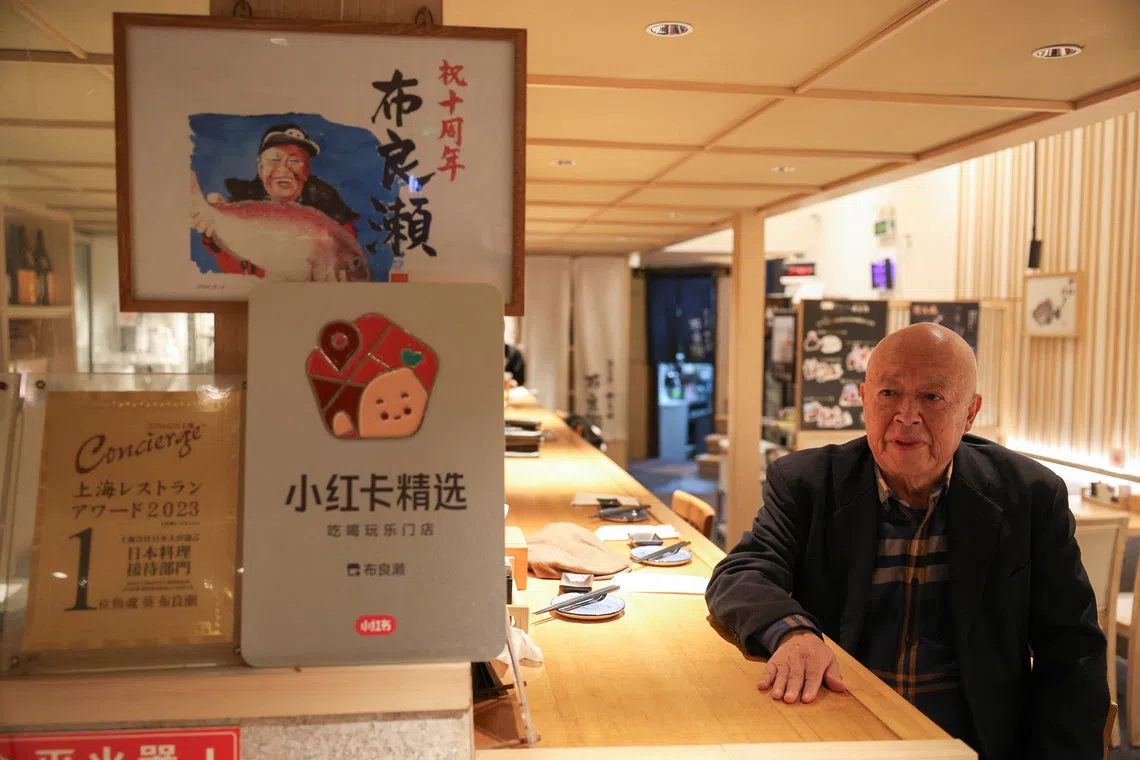Japanese restaurant owners in China lament flare-up in diplomatic tensions amid cancellations
Sign up now: Get ST's newsletters delivered to your inbox

At Mr Takashi Ito’s (pictured) Japanese restaurant in China, Chinese customers account for half of its bookings. It had a few cancellations on Nov 19.
PHOTO: REUTERS
Follow topic:
SHANGHAI – Mr Takashi Ito, owner of a restaurant in Shanghai, had been looking forward to China’s lifting of a ban on imports of Japanese seafood – only to have his hopes dashed this week amid an increasingly heated diplomatic spat between Beijing and Tokyo
Tensions between the Asian neighbours flared up after newly sworn-in Japanese Prime Minister Sanae Takaichi said in November that a Chinese attack on Taiwan threatening Japan’s survival could trigger a military response
China, which regards the democratically governed island as its own, responded with ire.
In addition to reinstating a ban on Japanese marine produce, it has boycotted travel to Japan
“Every time a major incident like this happens, we are in great pain because our hearts rise and fall as the relationship between Japan and China rattles every time. It’s very painful,” Mr Ito told Reuters at his Japanese seafood restaurant Merase.
In perhaps a worrying sign, the restaurant also had a few cancellations on the night of Nov 19, although the potential customers did not say why. Chinese customers generally account for half of Merase’s bookings.
Beijing had only recently partially eased restrictions on Japanese seafood that had been imposed due to Tokyo’s decision in 2023 to release treated wastewater from its Fukushima power plant, the site of a 2011 nuclear meltdown that followed a massive earthquake and tsunami.
Mr Ito has tried to source locally as much as possible, but some types of fish can be procured only from Japan.
“This incident is one of the biggest incidents so far,” he said, adding that he believes it is unlikely there will be any good news about seafood imports soon.
“Takaichi said what she said and I don’t think she will change it. If possible, I hope diplomats in Japan and China can work together to improve the situation. I hope that the people of China and Japan will be able to enjoy the same foods without fighting each other,” he said.
The dispute has seen vitriolic responses by a Chinese diplomat in Japan
But both Mr Ito and fellow Shanghai-based restaurateur Kazuaki Sone say they are not concerned about their own safety – only about the potential that problems between governments will make it harder for people to continue connecting for business, food or cultural exchange.
“I’ve lived a long time in China and I have experienced diplomatic tensions between Japan and China several times,” said Mr Sone who moved to China in 2012 and opened a yakitori restaurant, Hyakumanben, two years ago.
“But people in general, especially good friends, don’t treat me any differently... That’s why I am still able to work here in China,” he said. REUTERS

